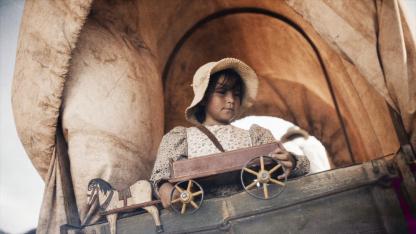Clans to Constitutions
A Chickasaw Storytellers' SeriesThe oral history of the Chickasaws and other Southeastern Indian people paint a picture of generations past where all things were united. The earth, animals and humans existed as one and Aba' Binni' li', the Creator, provided spiritual animal guides organized into clans to establish structure and kinship ties for the Chickasaw people. These clans were represented by animals such as an alligator, bear, bird, deer, fish, fox, panther, skunk, squirrel, wolf or Minko', among others. This ancient social institution played an integral role in the Chickasaw belief system and the development of Chickasaw society. All Chickasaws belonged to a clan of his or her mother, which determined status, relatives, enemies and allies, inherited property, to what obligations an individual was responsible, and who one could or could not marry.
In the seventeenth and eighteenth centuries, Europeans who interacted with the Chickasaws found negotiating trade or building alliances to be challenging and struggled to understand the complexity of their socio-political and kinship organization. Following the American Revolution, intrusion by Americans into the Chickasaw Homeland became a tipping point. This led to a shift in the governing structure of the tribe and the kinship-based clan system.
By the 1800s, outsiders were encroaching more and more into Chickasaw and other Southeastern Indian tribal lands. There became an increased pressure to remove the Southeastern Indian tribes, including the Chickasaw. Many atrocities leading up to the Indian Removal Act of 1830 occurred, forcing Chickasaw leaders to make the painful, yet, necessary decision to remove to Indian Territory (present-day Oklahoma). Following Removal, the Chickasaws understood that in order to deal on an equal level with the federal government, they would need to have a form of government Americans understood. In 1856, the Chickasaw drafted a new constitution which provided a three system form of government, much like the United States, to meet the needs of Chickasaws, ensure prosperity and maintain their cultural identity. Under the 1856 Constitution the Chickasaw also elected their first governor, Cyrus Harris.





















